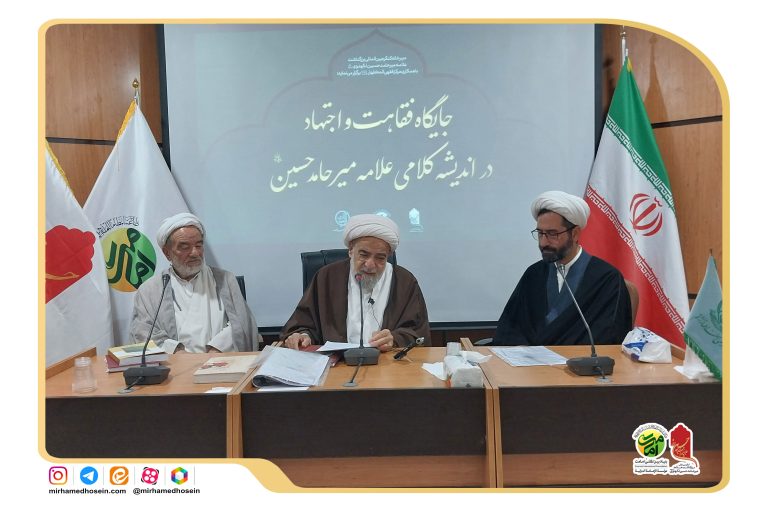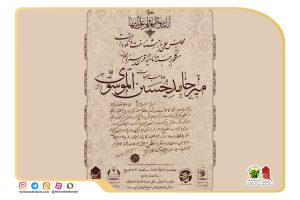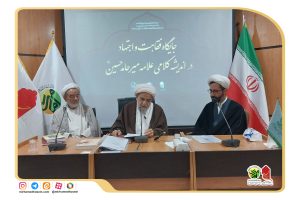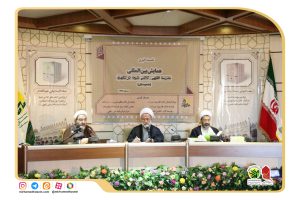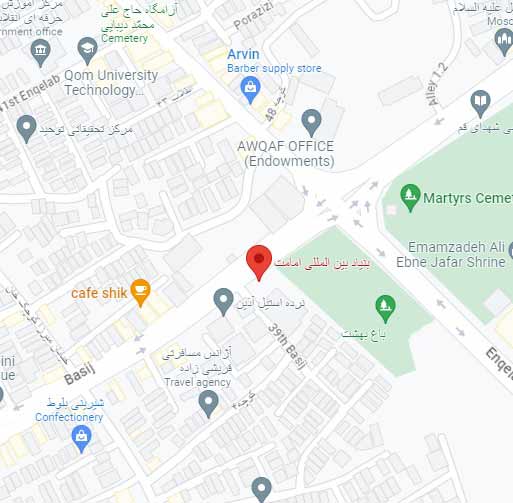Exploring the Jurisprudential Dimensions of Allamah Mir Hamid Hussain
The preparatory session commenced with scholars and students at the Jurisprudential Center of Ahl al-Bayt (AS) in attendance. Ayatollah Najmuddin Tabarsi (may his stature be elevated), member of the Qom Seminary Teachers’ Association, elucidated the jurisprudential aspects of Allamah Mir Hamid Hussain’s works, stating:
“The scholarly persona of Allamah Mir Hamid Hussain was shaped within a theological-jurisprudential school that synthesized all intellectual approaches to Islamic sciences, particularly jurisprudence. While renowned in academic circles as a leading theologian, examination of his jurisprudential treatises reveals profound legal expertise. His research demonstrates that alongside theological works like ‘Abaqat al-Anwar,’ the Allamah—throughout his 60-year lifespan—produced exceptionally precise and distinguished jurisprudential contributions.”
“Al-Najm al-Thaqib”: A School of Jurisprudence
Hujjat al-Islam wa al-Muslimin Natiqi, researcher and editor of “Al-Najm al-Thaqib fi Mas’alat al-Hajib” and “Rawd Ariz fi Munjazat al-Mariz,” analyzed these two jurisprudential treatises textually, contextually, and methodologically:
“The treatise Al-Najm al-Thaqib—authored by the writer of Abaqat al-Anwar—and Rawd Ariz by the Allamah’s teacher, the late Mufti Muhammad Abbas al-Tustari (now critically edited and published by the Congress Secretariat), represent complete jurisprudential works whose meticulous verification required extensive time and precision.”
Describing the jurisprudential methodology in Al-Najm al-Thaqib as constituting “a veritable school of jurisprudence,” Ustadh Natiqi asserted that “the Allamah’s standing in certain—indeed all—areas of jurisprudence surpasses that of several eminent jurists.”
Introducing the Lucknow Theological-Jurisprudential School
Hujjat al-Islam wa al-Muslimin Esfandiari, Academic Secretary of the Congress, chronicled Allamah Mir Hamid Hussain’s life and the Lucknow School’s legacy:
“Centered around the Reviver of Sharia, the late Ghufran Ma’ab, this school produced over 150 years of distinguished jurists and theologians—their enduring intellectual heritage standing as manifest testimony. In Lucknow’s Imamite section alone, over 100 mujtahids are buried near the Allamah’s shrine, evidencing the school’s pronounced jurisprudential dimension. Teachers like Mufti Muhammad Quli crucially shaped the Allamah’s jurisprudential thought alongside his theological framework.”

